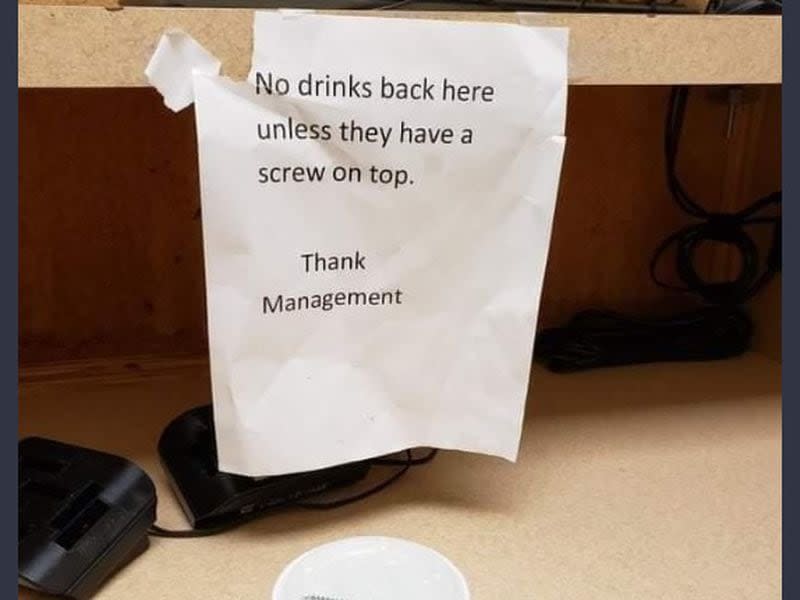Cash News
The former president of the United States is launching a crypto yield product, even as he appeals to the crypto industry in his current bid for office. Donald Trump will be the “chief crypto advocate” for World Liberty Financial, a venture that has offered scant hints so far about what it will actually do.
You’re reading State of Crypto, a CoinDesk newsletter looking at the intersection of cryptocurrency and government. Click here to sign up for future editions.
The narrative
Crypto is trying to make an impact this election cycle. Now, one of the leading contenders for President of the U.S. is tied to a forthcoming crypto venture.
Why it matters
There’s one pretty interesting question: how should the former president and current Republican nominee think about securities and anti-money laundering laws as he prepares to lend his name to a crypto project?
Breaking it down
Former President Donald Trump will be the “chief crypto advocate” for World Liberty Financial, a project seemingly based on Dough Finance and featuring his three sons and a host of other individuals in key roles, according to scoops by my colleagues Danny Nelson, Cheyenne Ligon and Sam Kessler this week.
A draft white paper seen by CoinDesk suggests that World Liberty Financial will sell 30% of the WLFI tokens generated, with the remaining 70% held by founders, service providers and other team members.
I want to focus on this part, as it raises some interesting regulatory questions. Trump, of course, has spent the past few months campaigning to crypto voters, making promises about installing industry-friendly regulators and making the U.S. the “crypto capital of the planet” in various public remarks.
This friendly stance, at odds with his opposition to crypto when he was actually in office, may end up benefiting him personally, given the forthcoming World Liberty Financial launch.
The major caveat here is that CoinDesk has seen draft documents; the final project may differ from what CoinDesk has reported on.
In the document CoinDesk did view, however, one common refrain has been that a 70% allocation toward existing project developers is relatively large, compared to other crypto projects.
The white paper also has a non-transferability clause, seemingly to prevent resales or suggest that investors can profit off of the tokens, at least at launch.
This alone would not be enough to bypass securities laws, said Dave Rodman, the founder and managing partner at Rodman Law Group.
“If all that happens is that people buy tokens that are ‘locked,’ nothing has been done to reduce exposure to US securities laws if Americans purchase the token,” he said.
It’s also unclear, at least so far, who exactly controls the wallets, said Alexandra Damsker, an attorney and consultant.
How the 70% retained is broken down is also unclear – whether each developer and project leader will receive an equal allocation or not.
WLFI is a governance token. Holders with some yet-to-be-defined minimum number of tokens can propose protocol changes or other suggestions, and all holders can vote using up to 5% of the total number of token supply. While the paper suggests this will “ensure fairness and distributed participation,” any aligned group that holds a majority of tokens may be able to influence these proposals.
The white paper also included a line about screening purchasers to comply with sanctions regulations.
The project will be a key target for attackers. We’ve already seen this, when X (formerly Twitter) accounts tied to Lara (Eric Trump’s wife) and Tiffany Trump (one of Donald Trump’s daughters) were hijacked this week to shill random addresses. Eric Trump tweeted that those addresses were a scam, prompting further confusion from people who couldn’t tell if this meant that World Liberty Financial itself was not real or just the addresses (to be clear: World Liberty Financial is a real project; those addresses were not part of it).


Wednesday
Thursday
-
There’s no report of this on the court docket, but a Friday order suggests there was a phone conference in SEC v. Coinbase on Coinbase’s efforts to obtain SEC communications.
-
(The San Francisco Chronicle) Oakland police will occasionally tow or subpoena Teslas because they may have recorded footage of crimes being committed due to their cameras. The 21st century is strange.
-
(Ian Carroll) A pair of security researchers found what appears to have been a bug that could theoretically help individuals bypass Transportation Security Agency screenings. The bug is now patched. H/t to my friend Matt for flagging this one.


If you’ve got thoughts or questions on what I should discuss next week or any other feedback you’d like to share, feel free to email me at [email protected] or find me on Twitter @nikhileshde.
You can also join the group conversation on Telegram.
See ya’ll next week!

